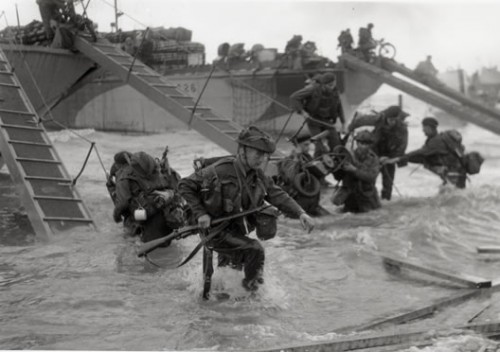The British military, along with that of the Soviet Union, was responsible for a great majority of the work that the Allied forces did in the first few years of the Second World War. Largely due to the number of troops as well as the innovation of the Higgins boats used to transport them, Americans tend to be credited with the victory of D-Day even though the British military was responsible for large portion of the planning and work in carrying it out.
One of the most honored regiments in the Second World War was that of the Sherwood Rangers, a group of specially trained men who wielded swords and rode horses in desert combat, but were also well-acquainted with some of the heavier equipment used by the British military. While they were well-equipped and highly trained, they were no less mortal than the rest of the men on the beaches of Normandy. As such, they lost a number of men both on D-Day as well as later in the campaign through Normandy.
Part of the reason that such units are often overlooked is that the landings were primarily led by an American, Dwight Eisenhower, who later went on to become President of the United States. The British military, however, also played a great role in the command. This included Air Chief Marshal Sir Arthur Tedder. Due to the breath-taking number of planes involved in the invasion, his usefulness to the operation can hardly be denied, the Express reports.
As has been a theme in many other conflicts throughout history, Britain’s navy was nothing to sneeze at, either. They lent almost one thousand ships to the proceedings and their officers were highly influential in the planning of D-Day. The British military has been largely defined by its navy for centuries, so it comes as no surprise that the Normandy invasion was no exception.
The British military donated a high volume of supplies, not to mention men, to the effort at overtaking the beaches of Normandy. Not shockingly, they also paid a heavy price for it in terms of casualties. Of course, there should never be a measuring contest when it comes to bravery. All units present for the landings, regardless of nationality, risked the price of death and destruction. Taking this into account, the efforts at making D-Day a success should never be attributed solely to the Americans or to the British military, but to the unity that made the Allied troops a force to be reckoned with.
